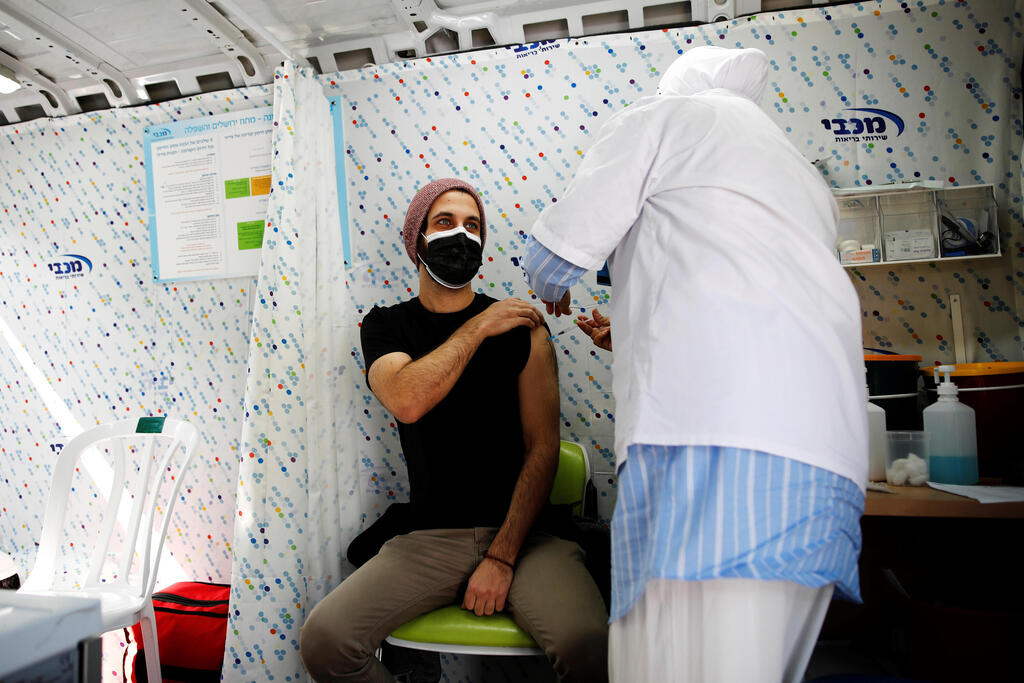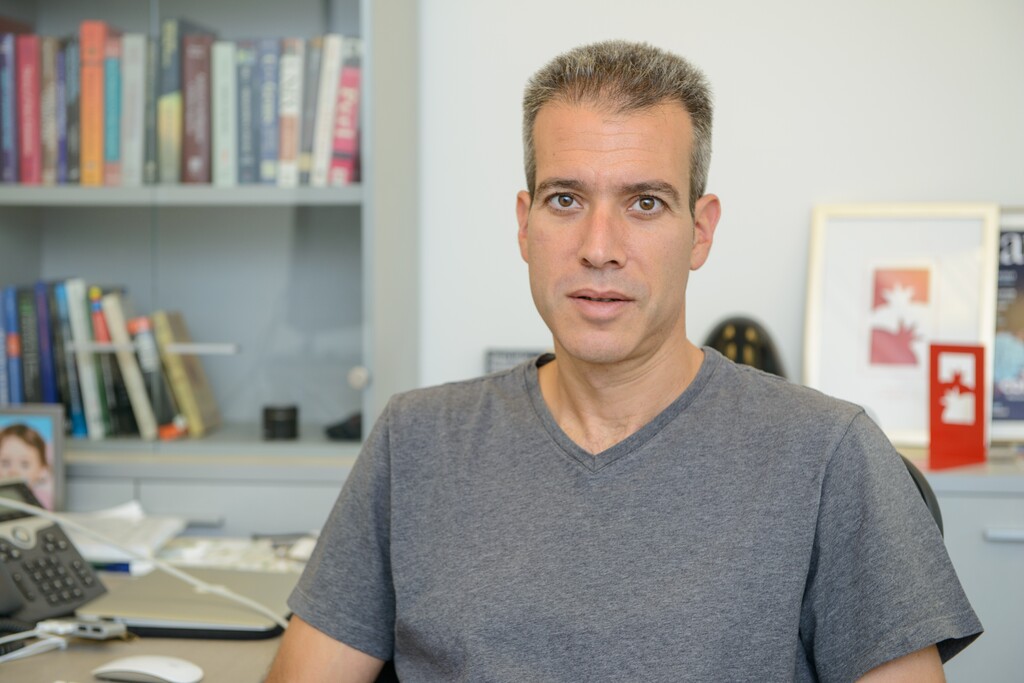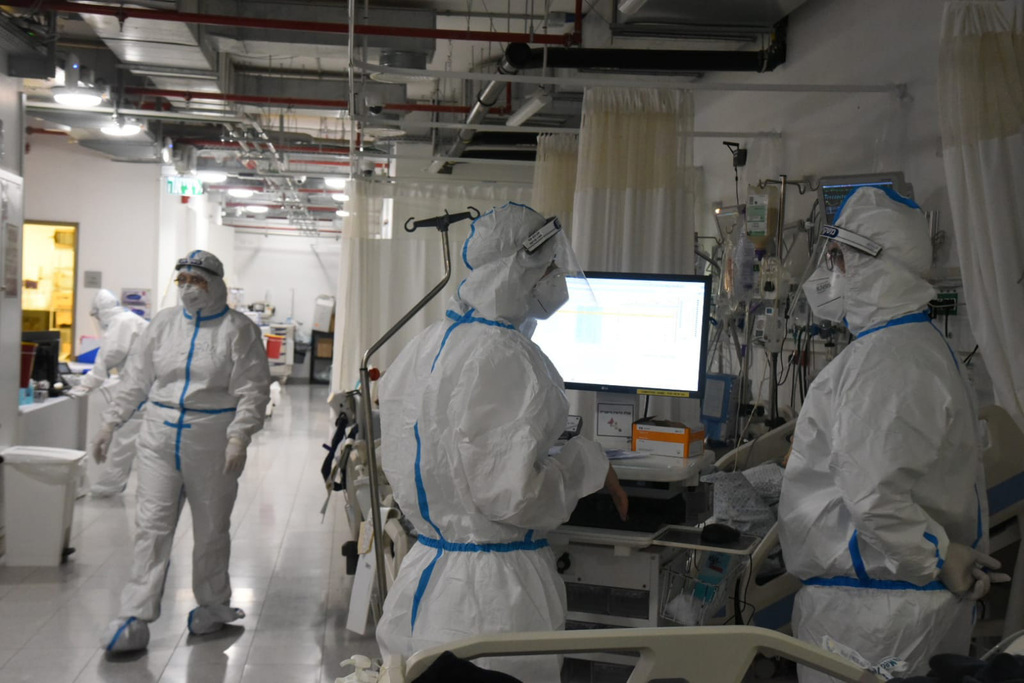A senior health expert said Sunday that according to data, COVID-19 vaccines have managed to cut infection rates by over 50% among young Israelis.
"We can be optimistic. Although the change was some 10 days late, we now see a drop in serious coronavirus patients," said Prof. Eran Segal, the developer of Weizmann Institute of Science's prediction model for the spread of pathogens in Israel.
3 View gallery


Health worker administers COVID-19 vaccine at a pop-up clinic in Tel Aviv
(Photo: Reuters)
"We predicted some 850 serious patients at the beginning of this week which is about the number we have right now. We also expect the numbers to dip further in the coming weeks despite the wide reopening of the economy."
Prof. Segal attributed the decline in both infections and serious COVID cases to growing sectors in the population receiving the shot.
"The first group to see a drop was the over 60s, which saw a dramatic decline in serious illness, followed by those aged 55-60," he said. "We estimate that we will see a similar drop among those aged 40-55."
He also said that a drop in infections and morbidity was first sighted five weeks after citizens aged 16-18 and IDF soldiers were allowed to receive the vaccine.
"Both these groups have shown a decline of over 50%," Prof. Segal said.
Asked whether the third lockdown was a mistake, Prof. Segal said that it was necessary due to the more infectious UK variant and that he is sure that without it "the numbers would have been a lot worse."
"At that stage, the lockdown was necessary," he said.
Prof. Segal however said that he did not believe that Israel conducted itself properly when it came to morbidity until the vaccines arrived.
"There was no way to lockdown infection hotspots. If that was better executed, we might have avoided a lockdown," he said, reassuring that Israel "did a good job" when it came to the vaccination drive.
"Once we are able to reach those quarter-million people over 50 that have not yet been vaccinated, we will see a dramatic drop in the potential morbidity other variants pose - excluding the South African mutation," he said.
"We will not be able to eradicate serious cases completely, but we will be able to ease the burden on hospitals."
Prof. Segal said that the latest research shows that the vaccine is less effective against the South African variant and that Israel must ensure that no new ones arrive into the country.



